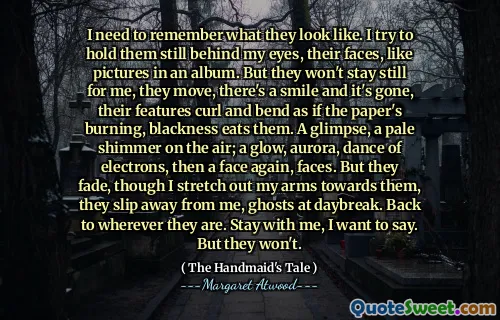What will Ofwarren give birth to? A baby, as we all hope? Or something else, an Unbaby, with a pinhead or a snout like a dog's, or two bodies, or a hole in its heart or no arms, or webbed hands and feet? There's no telling. They could tell once, with machines, but that is now outlawed. What would be the point of knowing, anyway? You can't have them taken out; whatever it is must be carried to term.
In Margaret Atwood's "The Handmaid's Tale," the uncertainty surrounding Ofwarren's pregnancy raises profound questions about the nature of reproduction in a dystopian society. The anticipation of her childbirth is tinged with fear, as the possibility of giving birth to an "Unbaby" looms large. This term reflects societal anxieties about genetic deformities and the loss of control over human life, as the consequences of breeding are now shrouded in mystery due to the banning of advanced medical technology once used to predict such outcomes.
The quote highlights a grim reality for the characters; they must accept whatever result Ofwarren brings forth without any foresight or option for intervention. The inability to ascertain the health of the fetus symbolizes a loss of autonomy over their bodies and futures. Ultimately, the narrative critiques the intersections of control, fertility, and the unpredictable nature of life within oppressive systems, emphasizing the emotional toll of carrying a pregnancy fraught with fear and uncertainty.






